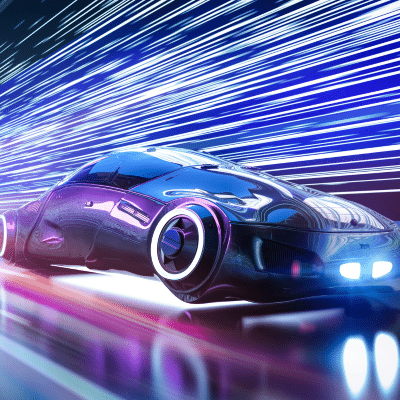|
Getting your Trinity Audio player ready...
|

AI is revolutionizing transportation in various ways, enhancing safety, efficiency, and sustainability across different modes of transportation. With AI, transportation systems can become smarter, safer, and more sustainable. This paves the way for a future of efficient and seamless mobility.
Here are some key areas where AI in transportation is being used:
- Autonomous Vehicles: AI plays a crucial role in the development of autonomous vehicles (AVs). Self-driving cars, trucks, and drones use AI algorithms for perception, decision-making, and control to navigate roads safely without human intervention. Companies like Waymo, Tesla, and Uber are actively developing and testing autonomous vehicle technology.
- Traffic Management: AI is used in traffic management systems to optimize traffic flow, reduce congestion, and improve safety. Adaptive traffic signal control systems utilize Artificial Intelligence algorithms to adjust signal timings based on real-time traffic conditions, minimizing delays and improving the overall efficiency of road networks.
- Predictive Maintenance: Artificial Intelligence-powered predictive maintenance systems are employed in transportation infrastructure, such as railways, airplanes, and fleets of vehicles. These systems analyze sensor data to predict equipment failures before they occur, allowing for timely maintenance and minimizing downtime.
- Route Optimization: AI algorithms are used for route optimization in transportation and logistics operations. Whether it’s delivery routes for trucks, flight paths for airlines, or public transit schedules, AI can analyze data such as traffic patterns, weather conditions, and demand to optimize routes for efficiency and cost-effectiveness.
- Ride-Sharing and Mobility Services: Ride-sharing companies like Uber and Lyft use AI algorithms to match passengers with drivers efficiently, optimize driver routes, and predict rider demand. Additionally, AI-powered mobility services, such as electric scooters and bike-sharing programs, utilize smart algorithms to manage fleet operations and distribution.
More areas where AI is being utilized:
- Intelligent Transportation Systems (ITS): ITS integrate AI technologies to enhance transportation safety, efficiency, and sustainability. These systems include features such as collision avoidance systems, adaptive cruise control, lane departure warnings, and automated toll collection, all of which rely on Artificial Intelligence for decision-making and control.
- Public Transit Management: AI is used in public transit systems for scheduling, routing, and passenger management. Predictive analytics help transit agencies optimize service frequencies, adjust routes based on demand patterns, and provide real-time information to passengers about transit arrivals and delays.
- Infrastructure Planning and Design: AI is employed in urban planning and transportation infrastructure design to optimize road layouts, traffic signals, and public transit. AI algorithms can simulate traffic flow, assess the impact of infrastructure projects, and design transportation systems that are safer, more efficient, and environmentally sustainable.
Overall, AI is transforming transportation by making it safer, more efficient, and more accessible. As technology continues to advance, we can expect further innovations in AI-driven transportation solutions.
Learn more about TWINTEL or call us at (888) 428-0599 or schedule a meeting today.
Click Here To Claim Your FREE Assessment and Action Plan
Mark Johnson is a passionate technology professional with over 11 years of experience in the Managed Services IT space and a wide variety of industry-leading certifications. Mark’s extensive Managed IT experience and aptitude for quickly learning and adapting to new technologies has equipped him to offer valuable insight across a broad spectrum of business technology solutions.
